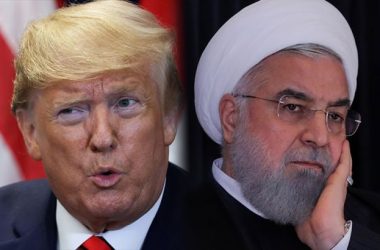
Mr. President, I wish to congratulate you on your election as the President of the Seventy Second Session of the General Assembly, and your predecessor Mr Thomson, for his commitment and effort to accelerate the implementation of the Sustainable Development Goals.
Mr. President, you could not have chosen a better and more relevant theme, given the times that we are living in. For, the pursuit and maintenance of peace and the promotion of development, in solidarity, lie at the core of the mission of the United Nations and its entire system.
Since the signing of the United Nations Charter seventy-two years ago, and in subsequent conventions, resolutions and declarations adopted over the decades, member states have sought to actualize the unquenchable human hope for peace, justice and ,progress.
Mr. President, but the current global development agenda differs in significant ways from all those that preceded it. It is ambitious, revolutionary, transformative, universal, and encompassing every single facet of human life. For its success, this Agenda demands a radical, unprecedented paradigm shift, in every sphere of human life.
Mr. President, we cannot halt or reverse the continued destruction of our natural habitat or the rise in global atmospheric temperature, without a change in contemporary production and consumption patterns. This has been confirmed by scientific evidence. We cannot halt or reverse the persistent widening gap between the rich and the poor among our nations, without deeper international cooperation and genuine reform of the existing inequitable international system. The current system is inherently structured to enrich a few and impoverish the many. It cannot, therefore, deliver on a key aspiration and watchword objective of the 2030 Agenda, that of leaving no-one behind.
Mr. President, for us in Africa, the current antiquated system perpetuates a historic injustice, one that can never ever be justified today. The 2030 Agenda represents new wine, and we call for a new wineskin lest we ruin the new wine. It is for this reason that I reiterate my country’s unflinching support for the African Common Position on Security Council reform, commonly known as the Ezulwini Consensus.
Mr. President, the overwhelming majority of us have accepted that we need to reform the current system in order to improve, but not destroy it. Nonetheless, the negotiations and process intended to yield the accepted reforms are painstakingly slow. We are left to wonder, justifiably so, whether those who enjoy, and sometimes abuse the power and privileges of the current set up, are sincere interlocutors in these discussions.
Mr. President, it is axiomatic that we harvest what we sow. Yet, by some strange logic, we expect to reap peace when we invest and expend so much, in treasure and technology,, in war.
According to the Stockholm International Peace Research Institute, global military expenditure in 2016 amounted to approximately 1.6 Trillion dollars. In the same year, according to the Organisation for Economic Cooperation and Development, Overseas Development Assistance amounted to approximately 142.6 billion dollars.
Those mega investments in ever more lethal weapons and more sophisticated war machinery have not resulted in greater peace or security. Instead, we have witnessed heart rending suffering and misery and increased mass movements of people fleeing wars and armed conflicts. This trend, Mr. President, should be halted, for the benefit of humanity.
Mr. President, we believe a different and better world is possible. In proposing and inviting us to focus on prevention, preventive diplomacy, peaceful resolution of conflicts, peace building and sustaining peace, the Secretary-General is pointing us in that desirable direction. We must also seriously tackle the multifaceted and complex root causes of conflict, including enduring poverty and deprivation, unequal access to resources, the denial of the rights to self-determination of peoples and interference in the internal affairs of other states, among other causes.
Mr. President, the continued denial of the right to self-determination to the peoples of Western Sahara and of Palestine who are living under colonial and foreign occupation; is immoral and an urgent issue for those seeking peace and security in our time. The Security Council has assumed its Charter responsibilities and has passed numerous resolutions. What remains is the enforcement and implementation of those resolutions.
We call on the Security Council to demonstrate its authority in ensuring the holding, without much further delay, of the independence referendum in Western Sahara. We expect the Security Council to work closely with the African Union, its proven partner for peace on the African Continent, in this effort.
The ever deteriorating situation and the continued suffering of the Palestinian people should spur the Security Council to renewed, time-framed efforts to bring about the two-state solution already defined in numerous General Assembly and Security Council Resolutions.
Mr. President, development and peace are conjoined and cannot be separated. My country has embraced the 2030 Agenda as an integrated and comprehensive approach to address the myriad and complex national and global challenges in solidarity and in cooperation with other stakeholders.
Zimbabwe was honoured to be among some other forty plus countries that participated in the Voluntary National Review at the 2017 High Level Political Forum in July. We were, and still are, pleased to share with other countries our experiences and to learn from others their experiences in implementing the Sustainable Development Goals.
We recognize the need for beneficial partnerships both within and outside of our national borders. One of our key partners is the United Nations System with which, I am happy to note, we work very closely. I wish in this regard, to welcome the Secretary-General’s initiative to ensure that the support of UN country teams will be guided by national priorities. This will ensure national ownership and leadership of the development processes as well as the sustainability of development projects and programmes. This, Mr. President, is what we are experiencing in Zimbabwe.
Mr. President, my country is an unflinching advocate for the respect of the sovereignty and independence of countries. We therefore strongly defend and respect the right of Each country to take decisions in exercising its sovereign rights. We cannot, however, remain silent when those decisions impact, or have the potential to negatively affect our own welfare.
Climate change, Mr. President, is a present reality and so are its effects and impacts. Climate change is global. We cannot remain silent when a major economic power in the world, or any other state for that matter, decides to abandon the Paris Climate Change Agreement, and thus put our countries at further risk of the effects of climate change such as more frequent and severe droughts. It is vital that we all play our part, in keeping with the provisions of the UN Framework Convention on Climate Change, in order to halt the inexorable march towards the destruction of that upon which our own existence depends.
Mr. President, as I conclude my remarks, it is worth reminding each other that the world today, by its very interconnectedness, demands more not less solidarity; more not less cooperation; more not less multilateralism. We have brought more and more issues under the global agenda and within the global discourse. This acknowledgement has found expression in the 2030 Agenda and the Sustainable Development Goals. Our survival and progress calls for reinforced solidarity, partnerships and cooperation. This is a call to which we all must respond positively and actively. Zimbabwe is already doing so.
Thank you.
RGM/jm
This speech was made by President Robert Gabriel Mugabe of Zimbabwe at the 72nd Session of the UN General Assembly in New York.






What happened to the “return of the Biblical giant called Goliath”, and the rest of that portion of his address?
Anyway, I thought he delivered a good address, but unfortunately, his record is not defensible.
Moreover, having stayed this long in power, his call for others to respect the rights of citizens of nations to make their own choices is very hollow.
In short, the message was brilliant but the messenger was tainted.
President Mugabe you know you are too old for these nonsense. The real cause of conflict and war in Africa is poverty and hopelessness. The true cause of poverty and hopelessness is greed by men and women like you who perpetuate themselves on The citizens. The major beneficiary of wars in Africa are those who manufacture and sell small arms to clueless idiots that call themselves Presidents. If only you are serious and lead by example our continent-Africa will be a better place today. Save the speech, just resign.
Dr. Sarr, you are right on point about president Mugabe
I have spoken with many Zimbabweans over the years and even yesterday and today.
Both Shona and Ndebele. The common consensus is they,,, like Gambians were to reluctant to criticise there sitting President’s other than to say the economy was the best in Southern Africa before Mugabe and now it is the worst. I was invited to give a short speech at the Law school in Bakau, some years back and asked the students to explain to me why Mugabe bulldozed 300,000 homes of opposition members. This was to be met with a stoney silence. The students eyes turned to the Government Ministers face who was chaperoning me. It was a very uncomfortable moment.
Somehow President Mugabe, { like him or loathe him}… did change the Western perception that “they” the West, still owned and controlled Africa. His singular defiance with humour at the expense of the British, was long overdue. However, he is likely to be remembered for his sometimes brutal domestic politics which is probably the main difference between western style democracy and the African brand.I agree with Bax that his speech at the UN was outstanding and befitting the true identity of a reforming African statesman. Perhaps like most of us…at later life, we would have done so many things differently. I for one still admire his spirit and bravery.
Dr. Sarr, you are right on point about president Mugabe